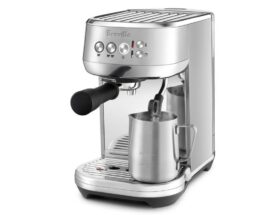
Coffee and Health: Debunking Myths and Highlighting Benefits
Coffee has been a staple beverage for centuries and is enjoyed by millions worldwide. However, it has also garnered its fair share of controversy and myths surrounding its effects on our well-being. In this article, we aim to separate fact from fiction and shed light on the potential benefits and considerations of coffee consumption. We will explore the role of caffeine and antioxidants in coffee and their impact on our health.
Table of Contents
Coffee and Health Benefits
Coffee is one of the most widely consumed beverages in the world, loved by many for its rich aroma and invigorating effects. Contrary to popular belief, coffee can actually have numerous benefits for your health. Studies have shown that coffee consumption may lower the risk of developing several health conditions, including cardiovascular disease, Parkinson’s disease, type 2 diabetes, and liver disease. Additionally, coffee contains important antioxidants that can help protect your body against free radicals, reducing the risk of chronic diseases such as cancer. However, it’s important to separate fact from fiction when it comes to coffee’s impact on health, as there are also myths that have been perpetuated over the years. Let’s delve deeper into the subject and debunk common myths while highlighting the true benefits of coffee.
Did you know that coffee is the second most consumed beverage in the world? The first is water!
Coffee and Health: Debunking Myths and Highlighting Benefits
Uncover the truth about coffee’s impact on health with this informative blog post. We’ll discuss both the potential benefits and considerations of coffee consumption, debunk common myths, and highlight the role of caffeine and antioxidants in coffee. The blog also explores the effects of coffee on various health conditions.
The Potential Health Benefits of Coffee
Coffee has long been associated with various health benefits, supported by scientific research. Here are some of the potential advantages of coffee consumption:
- Boosts cognitive function: Coffee has been shown to enhance mental alertness, focus, and concentration. It stimulates the central nervous system and may improve cognitive performance.
- Rich in antioxidants: Coffee is a significant source of antioxidants, which protect the body from oxidative stress and inflammation. These compounds, such as chlorogenic acid, may have potential health-promoting effects.
- Enhances physical performance: The caffeine in coffee acts as a stimulant, increasing adrenaline levels and boosting physical performance. It can improve endurance, delay fatigue, and enhance muscle contractions.
- May lower the risk of certain diseases: Studies suggest that regular coffee consumption may reduce the risk of conditions such as type 2 diabetes, Parkinson’s disease, liver disease, and certain types of cancer (including liver and colorectal cancer).
Debunking Common Coffee Myths
Despite its potential benefits, coffee has been subject to many myths and misconceptions. Let’s debunk some of the common misconceptions surrounding coffee:
- Coffee dehydrates the body: While caffeine does have diuretic properties, the amount of water in a cup of coffee is enough to offset its mild dehydrating effect. Moderate coffee consumption can contribute to daily hydration.
- Coffee is addictive: While coffee contains caffeine, which is a mild stimulant, it does not cause addiction in the same way as substances like drugs or alcohol. Moderate coffee consumption is considered safe and does not lead to dependency.
- Coffee causes heart disease: Contrary to popular belief, moderate coffee consumption is not linked to an increased risk of heart disease. In fact, some studies suggest that coffee may even reduce the risk of heart-related conditions.
- Coffee inhibits nutrient absorption: While coffee may mildly inhibit the absorption of certain minerals like iron and calcium, this effect is generally minimal and not a concern for individuals with a varied and balanced diet.
The Role of Caffeine and Antioxidants
Caffeine is one of the key components in coffee, responsible for its stimulating effects on the central nervous system. While caffeine can have its drawbacks, such as disrupting sleep or causing jitters in some individuals, moderate consumption is generally safe for most people.
Antioxidants, on the other hand, are beneficial compounds found in coffee that help protect the body against damage caused by free radicals. These antioxidants, including chlorogenic acid, may contribute to the potential health benefits of coffee.
Coffee and Health Conditions
While coffee can have numerous advantages, it’s important to consider the effects on different health conditions. Here are a few examples:
- Pregnancy: Moderate coffee consumption (1-2 cups per day) is generally safe during pregnancy. However, it’s recommended to limit caffeine intake to avoid potential risks.
- Acid reflux and gastrointestinal issues: Coffee can worsen acid reflux symptoms in some individuals. Choosing low-acid coffee options or reducing consumption may help alleviate the discomfort.
- Anxiety and insomnia: Caffeine sensitivity varies among individuals, and excessive intake can lead to anxiety and sleep disturbances. It’s essential to be mindful of personal tolerance and adjust consumption accordingly.
Overall, while coffee has its potential health benefits, it’s essential to consume it in moderation and be aware of individual sensitivities or health conditions. Consulting with a healthcare professional is always advisable to ensure personalized recommendations.
Step-by-Step Guide: Incorporating Coffee for Health Benefits
1. Choose Quality Coffee Beans
Start by selecting high-quality coffee beans for the best health benefits. Look for beans that are freshly roasted and preferably organic. Organic beans ensure that your coffee is free from pesticides and harmful chemicals.
2. Brew Your Coffee Properly
The brewing process can affect the taste and health benefits of your coffee. Opt for methods that maintain the natural antioxidants and minimize the loss of nutrients. Consider using a French press or pour-over method instead of traditional drip machines.
3. Mindful Consumption:
It’s important to consume coffee mindfully to fully enjoy its benefits. Keep in mind the following suggestions:
- Avoid Excessive Consumption: Limit your intake to moderate levels, typically 1-3 cups per day, to prevent potential negative effects.
- Avoid Sugary Additions: High sugar content in coffee can negate its health benefits. Instead, try adding a small amount of natural sweeteners like honey or alternatives like almond milk.
- Time Your Coffee Consumption: Be cautious about consuming coffee too close to bedtime as the caffeine may interfere with your sleep patterns.
4. Discover the Health Benefits:
Let’s explore some of the amazing health benefits associated with coffee consumption:
- Boosts Energy and Alertness: Enjoy the natural stimulant, caffeine, in coffee for increased energy, focus, and improved cognitive function.
- Rich in Antioxidants: Coffee contains numerous antioxidants that fight inflammation and reduce the risk of chronic diseases, such as heart disease and certain types of cancer.
- Enhances Physical Performance: The caffeine in coffee can improve physical performance by increasing adrenaline levels and boosting metabolism.
- Reduces the Risk of Some Diseases: Regular coffee consumption has been linked to a lower risk of type 2 diabetes, Parkinson’s disease, and liver disease.
5. Addressing Health Conditions:
While coffee offers several health benefits, it’s essential to consider its effects on specific health conditions. Here are a few notable examples:
- Heart Conditions: Consult with your healthcare provider if you have a heart condition, as excessive caffeine consumption may be detrimental.
- Pregnancy: Pregnant women should limit their caffeine intake to avoid potential complications.
- Acid Reflux: Coffee can exacerbate acid reflux symptoms for some individuals. Try low-acid coffee options or decaffeinated alternatives.
- Sleep Disorders: Individuals with sleep disorders should be cautious with their coffee intake, especially in the evening.
6. Stay Hydrated
Remember to stay hydrated by consuming an adequate amount of water alongside your coffee. While coffee contributes to your daily fluid intake, balance it with pure water for optimum health.
7. Listen to Your Body
Everyone reacts differently to coffee, so pay attention to how your body responds. If you experience negative side effects like jitters, heart palpitations, or disrupted sleep, consider reducing your intake or switching to decaffeinated options.
8. Enjoy the Ritual
Lastly, savor the process of brewing and enjoying a cup of coffee. Appreciate the taste, aroma, and the comforting ritual that comes with it. Sit back, relax, and relish in the moment.
By following these steps and incorporating coffee into your routine mindfully, you can experience the potential health benefits it offers while minimizing any adverse effects.
Wrap Up
In conclusion, coffee is a complex beverage that has both potential benefits and considerations for health. While it is important to be aware of the caffeine content and its potential effects on certain health conditions, it is also vital to recognize the numerous health benefits that coffee can offer. From boosting energy levels and mental alertness to reducing the risk of certain diseases, coffee can be a valuable addition to a healthy lifestyle.
By debunking common myths and understanding the role of caffeine and antioxidants in coffee, we can make informed choices about our coffee consumption. It’s important to note that individual responses to coffee may vary, and it is always best to listen to your body and consult with a healthcare professional if you have any concerns.
We hope this blog post has provided you with valuable insights into the relationship between coffee and health. Feel free to leave a comment below and share your thoughts or experiences with coffee. And don’t forget to check out Ten Coffees for more informative articles and resources on coffee brewing, recipes, and more:
- Ten Coffees
- How to Vietnamese Coffee: The Strong & Bold Coffee
- How to Hario V60: The Ultimate Guide to Making Perfect Coffee
Thank you for reading, and happy brewing!









